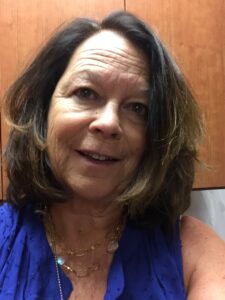
Sue Hamilton regularly encounters grieving families in her work with the Organ and Tissue and Donation program at the University of Wisconsin-Madison. She consults with families as they consider major decisions at the end of a loved one’s life.

Hamilton felt she needed to learn more about supporting those in the midst of loss. So she enrolled in UW-Madison’s Grief Support Specialist Certificate Program, designed for counselors, educators, and other professionals who facilitate healing after traumatic events.
“I frequently work with families at a time when help is most needed,” Hamilton says. “I’m a registered nurse and wanted to know more about grief and loss, to better offer support to these families. I learned additional methods to work through grief, particularly with children.”
The Grief Support Specialist Certificate Program is the first of its kind at a major American university. It begins with four day-long classes, taught by experts in grief therapy. A month later, participants reconvene to present a final paper or project.
“People who’ve taken the certificate program report that it has transformed their professional lives,” says coordinator Barbara Nehls-Lowe. “They range from a woman who counsels at-risk kids at the Boys & Girls Club of Greater Milwaukee to a couple who work in crisis services in Washington County. The program has helped participants to find jobs in this field or to add desperately needed skills in their current jobs.”
What grieving looks like
Isaiah Brokenleg took the Grief Support Specialist Certificate Program to help him in his work with Native American communities.
“We have a lot of historical trauma,” he says, “and I wanted to provide grief and loss support.”

The skills he learned helped Brokenleg get a job as a chaplain at Howard Young Medical Center in Woodruff, Wisc., where he supports people in crisis.
“I respond to situations where a chaplain is needed,” he says. “I usually get paged if someone dies, if someone is switched to palliative or comfort care, if someone has a heart attack or stroke, or if a baby is born in distress.”
Brokenleg appreciates the fact that each instructor brought a unique set of skills to the Grief Support Specialist Certificate Program. He found the course supportive and collaborative.
“I think the certificate helps me work with patients and families better,” he says. “I’m more comfortable in helping them grieve. I better understand what grieving looks like and how it can look different in different people.”
The next session of the Grief Support Specialist Certificate Program runs September 10-13 and October 10. Instructors include Douglas Smith, a therapist and the author of The Complete Book of Counseling the Dying and the Grieving; Molly Tomony, a child and family therapist for the Rainbow Project; Ridley Usherwood, the grief support coordinator for Home Health United; and Anne McGuire, a professional life coach who is herself a graduate of the Grief Support Specialist Certificate Program.
For more information, contact Nehls-Lowe, bnehlslowe@dcs.wisc.edu, 608-890-4653. To enroll, see here.